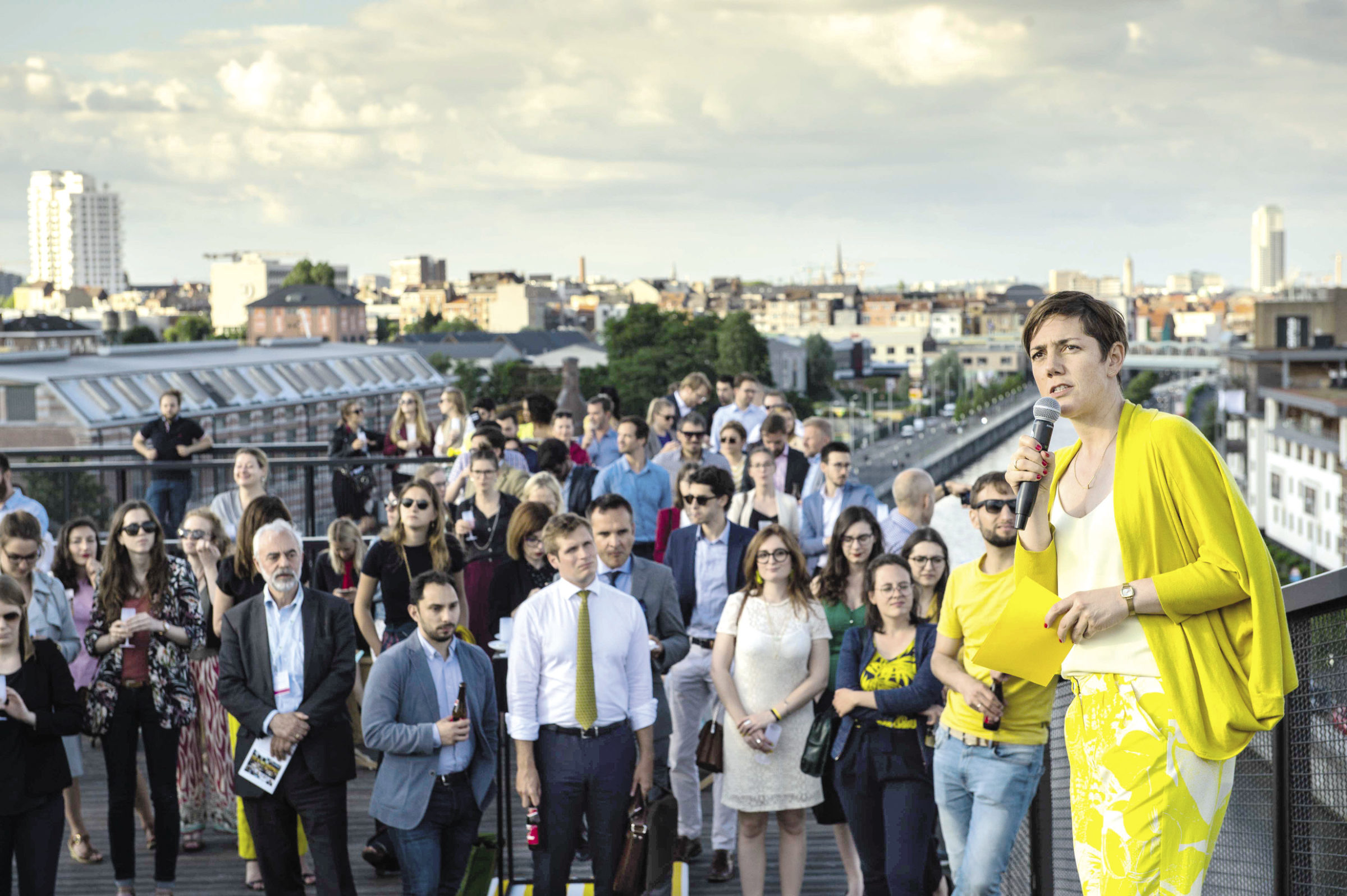pv magazine: Six months ago, you took over as the CEO for SolarPower Europe – how do you look back on this period?
Walburga Hemetsberger: It has been very nice to join SolarPower Europe during an era of huge solar growth. Like with all new jobs it has been challenging, of course, but also very rewarding. I have learned a lot about the technology and how fascinating it is. We delivered a couple of successful events, like the SolarPower Summit. We have [also] been very present with conferences [like] at Intersolar Europe. And also, we have been awarded as the best overall association in Europe.

Image: SolarPower Europe
Just when you took office, SolarPower Europe announced plans to come up with an industrial policy for the continent’s solar sector. Can you give me an update on this?
We issued our industrial strategy at the Clean Energy Industrial Forum in March, where we presented it to the commission. Since then, we have been very busy developing the strategy. We organized our fourth high-level industry forum at Intersolar [Europe], where we had high-level speakers from the industry say that now is the right time to strengthen the value chain in Europe. In our Solar Market Outlook, we forecast growth of 110% for the EU28 solar market. And we will see that growth continuing in the next couple of years. This demand is one of the elements you need in order to have an industry in Europe.
Will that strategy mainly aim to support module manufacturing, or other parts of the industry, with potential overlaps with the battery alliance?
I would say they are not overlapping, but we are indeed looking into the battery alliance, because we want to have something similar for the solar sector. And we are aiming to support the whole value chain. One focus point, for example, would be building integrated PV. And we are looking into cutting-edge technologies like heterojunction and perovskites. We would want to have support from the European Commission in particular, as they will come up with a draft industrial strategy by the end of this year and we are advocating for having solar in this industrial strategy. We are very confident on that, as the commission’s president-elect, Ursula von der Leyen, has announced that she will put forward an industrial strategy that will include clean technologies.
You have been pushing a rooftop PV campaign, under which you have set out to encourage member states to adopt policies supporting rooftop solar. How much acceptance are you gaining with that?
Just in June, we launched a campaign to use rooftops to produce green electricity with solar. So we are trying to convince the European institutions that they should act on that and use the space that we have in Europe for solar. We are just at the start of this process and are currently collecting signatures. This has been rather successful, and we are continuing that until the end of October. Then we want to present the European Parliament and Commission with the outcome of our campaign and engage with them on solutions.
The European Parliament held elections recently, with gains for the green parties, but also for far-right groups. What is your outlook for working with the new parliament on these industry goals?
First of all, I think the elections have been very positive for solar, because as you mentioned, the green caucus has been strengthened. But also, the other parties had climate solutions in their programs. Climate issues have been taken up as a priority in the parliament already. In general, we are very happy with the outcome of the elections. Having said that, when it comes to the decision-making process, there is no grand coalition anymore, so the decision-making processes might be a little bit more difficult.
The parliament just elected Ursula von der Leyen as the European Commission’s next president, but the green caucus has already dismissed her climate policy. Do you think that the climate proposals from various sides are ambitious enough?
I think that the program that von der Leyen put forward is generally very positive for solar. It is good news that she announced a ‘green new deal’ for Europe in her first 100 days. And there are a number of priorities that she already mentioned to support renewables in general and solar in particular. For example, the 55% CO2 reduction she was mentioning by 2030 – that could have a very positive effect on solar. But indeed, we fully agree that there is a climate urgency we are facing. We have 12 years left for decent solutions. And that is also why we are calling for the EU institutions to support our rooftop campaign. We truly believe that this can be one of the solutions, and you can react very quickly, but you have to have political support in that.
Do you think Finland, which is taking over the country presidency, will be able to bring its momentum into the European political arena?
Obviously, it will not be an easy one. But with their own goal to become climate-neutral by 2035, it puts them in a good position to lead the EU to become climate-neutral. EU leaders have not been very successful in finding an agreement on the net zero agenda by 2050, due to a couple of member states who vetoed such a decision. But I think Finland has a role to play in the next couple of months to bring the EU leaders back to the table and to propose solutions and convince those member states that are not convinced yet. And it really is just a few of them. We have 22 member states signed up already supporting a 2050 net zero agenda.
This content is protected by copyright and may not be reused. If you want to cooperate with us and would like to reuse some of our content, please contact: editors@pv-magazine.com.




By submitting this form you agree to pv magazine using your data for the purposes of publishing your comment.
Your personal data will only be disclosed or otherwise transmitted to third parties for the purposes of spam filtering or if this is necessary for technical maintenance of the website. Any other transfer to third parties will not take place unless this is justified on the basis of applicable data protection regulations or if pv magazine is legally obliged to do so.
You may revoke this consent at any time with effect for the future, in which case your personal data will be deleted immediately. Otherwise, your data will be deleted if pv magazine has processed your request or the purpose of data storage is fulfilled.
Further information on data privacy can be found in our Data Protection Policy.